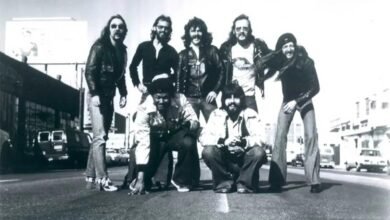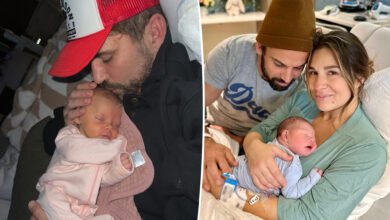Seriesmakers’ Second Edition Features New Projects From Kevin Macdonald, Kaouther Ben Hania, Mikko Myllylahti (EXCLUSIVE)

Seriesmakers, a joint initiative of Series Mania, Europe’s biggest TV festival, and European film-TV powerhouse Beta Group, has revealed the 10 top-notch project lineup of the second edition of its novel and high-powered mentoring program for filmmakers making their TV creator debut.
This year’s Seriesmakers features in development drama series from Oscar winner Kevin Macdonald (“George Blake”), behind “The Last King Of Scotland,” and from Finnish director Mikko Myllylahti, who burst onto the scene co-writing with Juho Kuosmanen the latter’s “The Happiest Day in the Life of Olli Makki,” a 2016 Cannes Un Certain Regard winner.
Also in the mix is the highly courted Kaouther Ben Hania, a double Oscar nominee for the “compelling, ambitious hybrid” “Four Daughters,” said Variety, in the doc category and the “The Man Who Sold His Skin” (2020), Tunisia’s entry in international feature.
In all, however, nine of the ten directors winning berths this year round have had titles in either Cannes, Venice and Toronto. The tenth, Hungary’s Hajni Kis whose “Wild Roots” was awarded at Karlovy Vary, is one of Eastern Europe’s most talked up young directors.
Seriesmakers, whose second edition has just wrapped, sees director-producer or director-writer teams closely mentored by experienced and successful drama series creatives while working on their series and developing a full pitch deck.
An online initiative, the caliber of Seriesmakers is seen in its speakers and mentors, many repeating from its inaugural edition.
Returning for its second edition as speakers are “Game of Thrones” triple Emmy Award winning executive producer and director Frank Doelger, also behind “The Swarm”; Israel’s Hagai Levi (“Scenes From A Marriage,” “In Treatment”) and Germany’s Stefan Arndt (“The White Ribbon,” “Babylon Berlin”).
They are joined by Ron Leshem (“Euphoria,” “No Man’s Land”), “Narcos” creator Chris Brancato (“Godfather Of Harlem,” “Pushing Daisies”) and showrunner Bryan Elsley (“Skins”).
Mentors, all repeating, are Germany’s Janine Jackowski, a producer on “Toni Erdmann” and “Spencer”; Israeli writer-script doctor Ronit Weiss-Berkowitz, creator of “The Girl From Oslo”; Isabelle Lindberg Pechou, a creative producer on Faroes Noir thriller “Trom”; and Brazil’s Felipe Braga, who forged some of Netflix’s earliest successes in Brazil, creating “Sintonia” and also writing-producing “Lov3.”
A brief breakdown of selected projects:
“Breach,” (director Mijke de Jong; writers Giancarlo Sanchez, Jan Eilander, 4 x 50’, Netherlands)
As unapproachable helmswoman Tisa (35) ferries a crowded boat of wealthy Dutch refugees to Dover, her traumas as a past refugee and her passengers’ prejudices growing, sparking war on board. De Jong returns to the theme of a violent outcome of Western discrimination developed winningly in “Layla M.,” the 2018 Dutch Oscar entry.
“Doctor’s Oath,” (director Mikko Myllylahti, producers Aleksi Hyvärinen and Taneli Mustone, 4×52’, Finland)
Myllylahti made his feature debut as a director with his Cannes Critics’ Week winner “The Woodcutter Story,” mixing the weird and a hangdog humor. He’s now developing “a highly realistic and suspenseful story” about “a side-tracked dermatologist who becomes the face of Finland’s soft approach towards AIDS.”

(L-R) Jan Eilander, Giancarlo Sanchez, Mijke de Jong (“Breach”) David Csicskar, Hajni Kis (“Elephant”)
Courtesy of Series Mania
“Elephant,” (director-writer Hajni Kis, creator-writer Dávid Csicskár, 7×40’, Hungary)
From Kis, whose “Wild Roots,” a 2022 Hungarian Film Awards best feature winner, marked her out as a director to track, and Csicskár, an experienced TV director, the psychological drama of Anna, 46, a perfect mother and wife, who’s also a functional alcoholic. When she hits the wagon, her life begins to fall apart.
“Freedom Academy,” (director Kaouther Ben Hania, producer Nadim Cheikhrouha, 8×45’, France)
A meta series about a series and critique of the commoditization of radical politics – a reality show set in a high-security prison hoping to spark more rivalry between its radical inmates, but confounded by the jury’s different takes on rehabilitation. The highly courted Ben Hania, a double Oscar nominee, directs. Longtime collaborator Cheikhrouha once more produces.
“George Blake,” (director Kevin Macdonald and producer Femke Wolting, 6×52’, U.K./Netherlands)
“What makes a person turn against everything they ever stood for?” the series description asks. “The untold true story of one of the most prolific double agents of not just the Cold War, but British history, George Blake,” – prolific maybe referring to his betrayal of 400 secret service agents, which he once claimed. A compelling figure, a traitor to most people, whose life was sometimes stranger than fiction and raises questions about identity and U.S. bombing policy in Korea, to name just two. Directed by Kevin Macdonald whose documentary “One Day In September” (1999) won an Oscar while his “The Last King Of Scotland” (2007) took a second Academy Award for best actor (Forest Whitaker).

Kevin Macdonald, Femke Wolting (“George Blake”) Yorgos Zois, Stelios Cotionis (“Play”)
Courtesy of Series Mania
“Play,” (director Yorgos Zois, producer Stelios Cotionis, 8×52’, Greece)
With his second feature “Arcadia” playing in 2024’s Berlin Encounters, Zois is “among a promising generation of emerging Greek filmmakers nurturing their own distinctive, idiosyncratic voices,” said Variety. An eight-part mystery drama, Zois’ “Play” turns on a lonely cinephile who joins a mysterious group of strangers that reenact movie scenes in real life. Picking up on Zois’ 2015 feature debut, “Interruption,” as “Play’s” characters “gradually lose themselves in the hazy realm between reality and fiction,” Variety noted.
“Sleeping Swans,” (director Barbara Albert, writer Ulrike Tony Vahl, producer Martina Haubrich, 8×52’, Germany)
Directed by veteran Albert whose films have screened at Venice (“Nordrand,” 1999), Locarno (“Free Radical,” 2003) and Toronto (“Mademoiselle Paradis,” 2017), in a coastal town in Eastern Germany, children are inexplicably falling into a mysterious condition. Investigating, Ellen Lennardsson discovers a sinister conspiracy encompassing not only the supernatural, but also the darker side of human nature.

Ulrike Tony Vahl, Barbara Albert, Martina Haubrich (“Sleeping Swans”) Erik Matti, Ronald Monteverde (“The Squatter”)
Courtesy of Series Mania
“The Squatter,” (director Erik Matti, producer Ronald Monteverde, 8 x 52, Philippines)
A secretive Filipino maid and dogged Ukrainian detective investigate a dead body in a rural town as the crime unravels who they are. From Matti and Monteverde at their Manila-based Reality MM Studios banner, having broken out to international recognition with the critically acclaimed political crime thriller “On The Job: The Missing 8.”
“The Willow Song,” (writer-director Guy Myhill and writers Tony Phillips and Sophie Vaughan, 8×50’, U.K.)
Winning Venice Days with “The Goob,” Myhill returns with the story of a young Black American GI who arrives in Britain to fight in WWII. He grows politically, falls in love across the race-line “and learns first-hand that his biggest battle is not against Nazi Germany, but the pervasive brutality and bigotry of the U.S Army,” the synopsis states.
“Willz,” (director-writer Amir Manor and director-writer Guy Raz, 10×40’, Israel)
The couriers at food delivery syndicate Willz unite to take on the company by robbing a bank, and exposing its greedy and unscrupulous ways. From Manor, director of Venice Days’ 2012 title “Epilogue,” a moving portrait of old age whose cinematographer, Raz, also writes and directs.
The three winning teams are announced on March 20 in Lille during the Series Mania Forum (March 19-21). Two teams will each receive a €50,000 ($54,500) Beta Development Award and will be working closely with Beta’s Content and Co-Production Division to develop a pilot script and a full package. An additional award of €20,000 ($21,800), courtesy of the Kirch Foundation in collaboration with HFF (University of Television and Film Munich), will be given to a third project.

Amir Manor, Guy Raz (“Willz”) Tony Phillips, Sophie Vaughan, Guy Myhill (“The Willow Song”)
Courtesy of Series Mania
Variety caught up with Laurence Herszberg, Series Mania general director, and Koby Gal Raday, Beta Group chief content officer, to drill down on Seriesmakers’ second edition.
What do you think you got right in what looks like a highly successful first edition of Seriesmakers and what did you continue to get right in the second?
Gal Raday: What really worked was our assumption that we were addressing a market need. There are a lot of workshops for writers and producers, not so many that are focused on directors, working collectively with writers and producers. The second edition had roughly the same number of submissions, many more from English-speaking countries – the U.K., U.S., and Canada, which dominated applications, even surprising us up to a point, but also from Indonesia, Taiwan, Slovenia, Senegal, and Bolivia, to name a few, from all corners of the world.
Laurence Herszberg: Also, we had a remarkable level of filmmaker participants, which intrigued speakers. It was very interesting to them to discuss those newcomers to drama series creation with a lot of cinema experience. There a lot of high-level discussion about artistic questions and how you you treat them in cinema and in [TV] fiction. It was really interesting for Hagai Levi, who’s done both film [“August Snow] and TV [“The Affair,” “Be Tipul,” adapted as HBO’s “In Treatment”] to discuss how you write a character in drama series with people who are up there with him as filmmakers but don’t know anything about TV fiction. It’s a profitable dialog for both sides.
And was there any follow-up?
Herszberg: We interviewed participants and conducted surveys and saw they were happy about the more operational masterclasses and hands-on mentorship, and more inspirational sessions from other showrunners or directors who have made the transition themselves. It was that balance that made Seriesmakers so successful.
The series this year, continue to be about something, they might be lighter but they are not popcorn entertainment….
Herszberg: It’s at the core of the festival. The series are about the world. The festival just presents them to audiences and professionals. Also, in a world in so much turmoil, creators try to look in the past or look into the future to address current topics. And the series are very character-driven. But it’s really at the core of TV series in a way. They are very much character driven, but for most of the times they also address a topic. Even if they’re going back to the family, to very intimate subjects, that’s always something more, which series, which have more time to develop characters, allow for more than cinema.
Indeed, best series are often “character-thrillers,” whose key entertainment is to see what happened to them, and why and the ethical implications of that…
Gal Raday: Characters that you can root for and possibly follow for years. That’s the key. Also, notwithstanding the zeitgeist and issue-based dramas, these filmmakers are concerned about ordinary people’s day-to-day lives. Also, there’s a very clear need to cut through the clutter. There are so many series, so the filmmakers are trying to find a unique point of view, a very specific artistic vision. Also, I have to say that if the market was presenting more comedies, we’d choose more comedies, but that is not the case.
Regarding the selection, last year’s Seriesmakers dealt with gender issues. This year they have practically disappeared. Instead, multiple titles are broadly political, questioning authority, expressing a skepticism about public policy, for example, in “Doctor’s Oath” and its vision of the commoditization of radical activism, or asking about the probity of U.S. military practice, in both “Freedom Academy”·and “George Blake.” Is that coincidental?
Herszberg: Regarding gender issues, we had the same thing at the festival. Last year, we had some titles, this year none. And series have gay characters but they aren’t really LGBT-themed, its just a character, as others are women. The sexuality is not underscored. This year we have strong IP, such as George Blake, just there was a series last year about French tycoon Bernard Tapié, which was hugely successful.
One of Beta Group’s roles at Seriesmakers is to check if series could work on the market. In that regard, what are you looking for?
Gal Raday: You can never really know what will work for the market and what commissioners will be able to commission, their budgetary levels at the end of the development period. But your chances are greater if you have a unique access point to the story, through characters that are strong enough to root for and a narrative that is compelling enough that you want to follow and develop. All the examples that you mentioned of projects this year, as well as others and the ones last year, are very strong stories.
At a European conference at September’s San Sebastián Festival Beta Group head Jan Mojto remarked that “creating content for a larger than national market is not a question of science, it’s a question of ambition.” Is that something you also look for in order to stand out in the crowd: Artistic ambition.
Gal Raday: That’s a very good point. Seriesmakers’ participants are such prestigious filmmakers that they have a very clear artistic vision. You want to let them freely take it into the world, to package it in a clever way, and to bring it to the market so that it will cut through the clutter.
As studios pull back in production and acquisition, moving into series affords more opportunities for employment. I suspect, however that that was not the motivation of the filmmakers at Seriesmakers which is more about gaining a larger storytelling flexibility, being able to move from film to TV.
Gal Raday: Yes, moving to series for the participants is not a question of money, but rather the scope of the artistic vision of the idea they have in mind. They know they will learn totally new, totally different skills-sets. And that’s what makes it very exciting.




